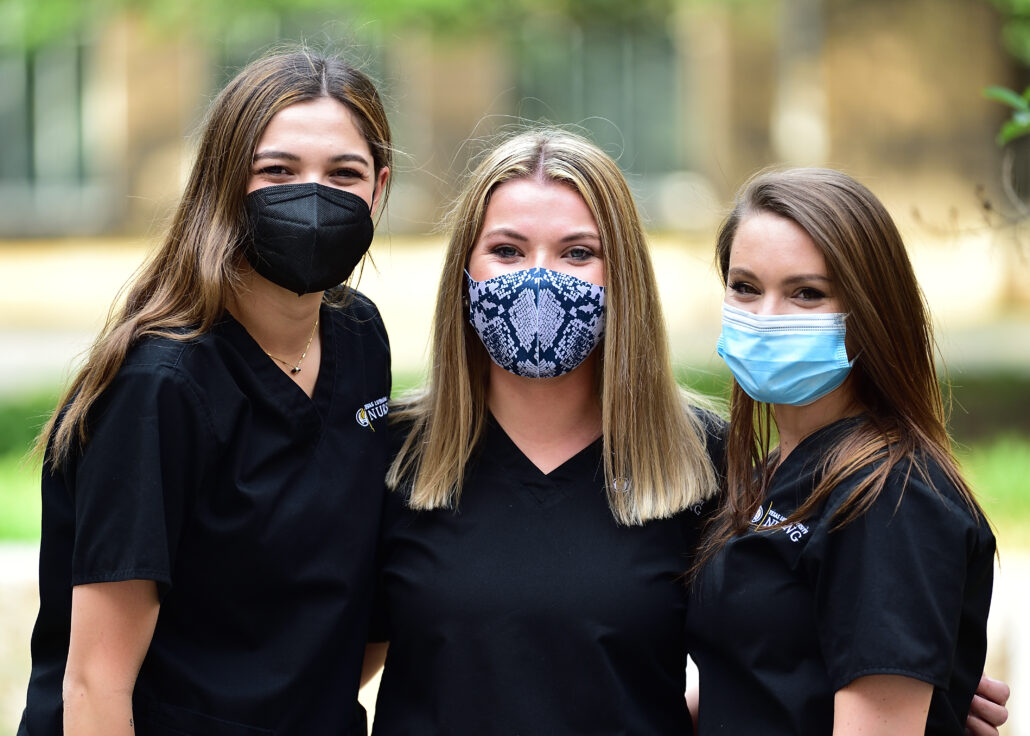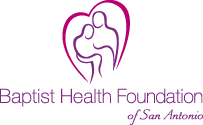In August, Baptist Health Foundation of San Antonio (BHFSA) held its yearly Scholarship Partner Celebration, which is a meet-and-greet event with BHFSA trustees and representatives from institutions of higher education that receive BHFSA funds for their scholarship programs.
BHFSA’s Scholarship Grants often fly under the radar in comparison to grants made to service organizations, such as Responsive Grants and Community Impact Grants. However, Scholarship Grants are deeply connected to the history of the Foundation and a significant portion of its grantmaking. In 2020, over $1.5 million went to 16 partner institutions.
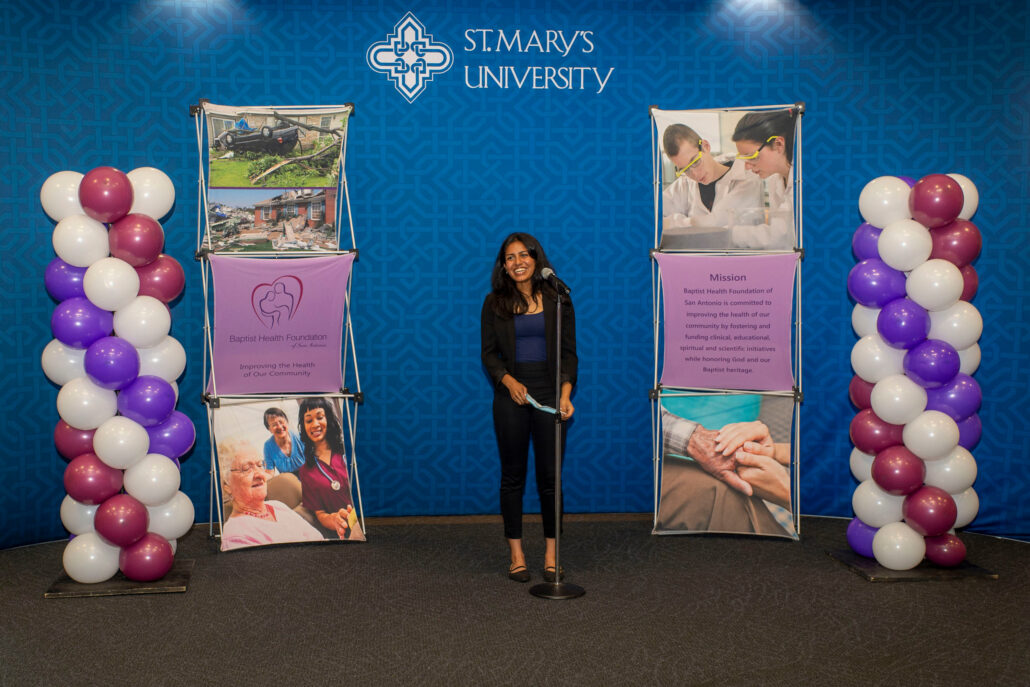
ENDOWED FUNDS
The majority of the funds given through Scholarship Grants come from endowed funds under BHFSA’s care. Some of these funds were established as long as seventy years ago, and were originally administered by the Baptist Health System Foundation. These passed into BHFSA’S hands with the sale of the Baptist Health System in 2004.
Many of the endowed funds are rich in story and significance. The Juanita Marie McCarble Endowed Scholarship Fund was created in 2015 by Pierre McCarble, Juanita’s loving husband of almost 50 years. The couple had been faithful contributors to the Baptist Memorial Hospital School of Nursing for 4 decades before Juanita’s passing. She was a proud graduate of the school of nursing herself.
Another fund, the Harry F. Adler, M.D., Ph.D., Scholarship Fund, provided scholarships to 25 nursing students in 2020. This fund, established in 2012, was created in memory of Dr. Adler, who served as chief of staff at Baptist Memorial Hospital. With his wife, Laura, Dr. Adler had contributed to the Baptist Memorial Hospital School of Nursing for many years before their passing.
These are just two of many different funds managed by BHFSA, all with their own history and stories. As a whole, Scholarship Grants serve as a testament to the generosity of many kind-hearted and forward-thinking individuals. These individuals, by providing scholarships, will affect change in the lives of students, their patients, and even their patients’ families for years to come.
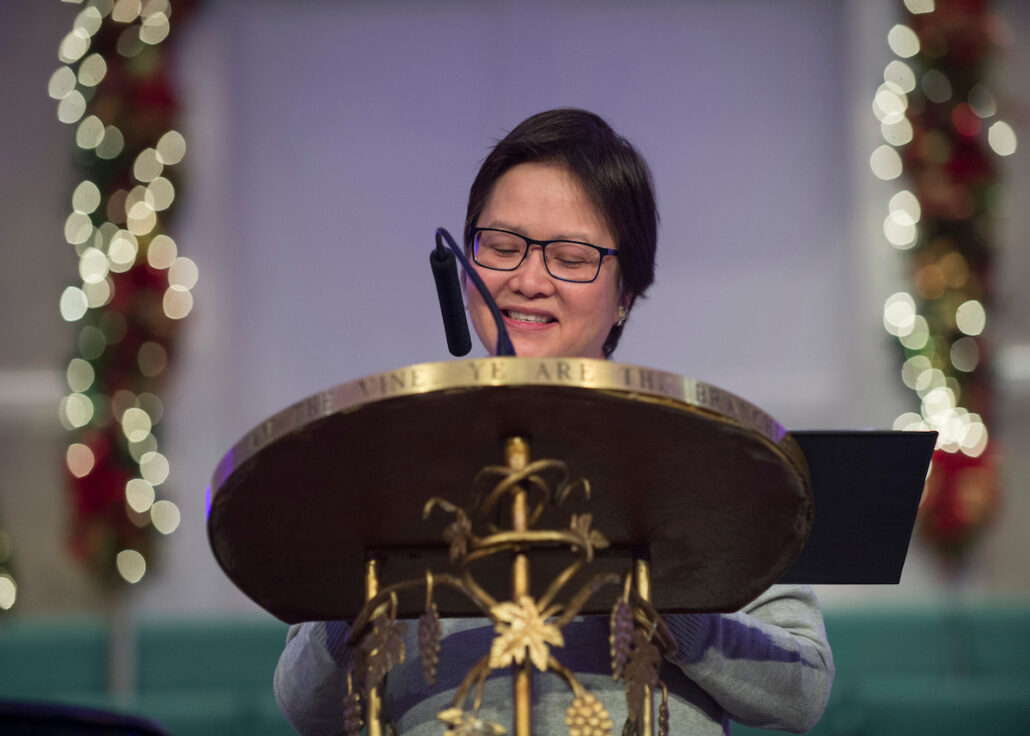
“Scholarships are the gift that keeps on giving. You get a trained professional who not only helps the community, but may also train more professionals just like them.”
-Dr. Alice Gong, BHFSA Trustee
DIVERSITY OF PROGRAMS
BHFSA’s Scholarship Grants aren’t limited only to nursing programs. The Foundation has very intentionally partnered with institutions that offer a diverse range of health education. Dr. Alice Gong (Professor of Pediatrics at Long School of Medicine, and William and Rita Head Distinguished Chair in Developmental and Environmental Neonatology) joined BHFSA at its founding and, as first chair of the Scholarship Committee, pushed for inclusion of multiple fields.
“At first,” Dr. Gong said, “There was some debate about expanding beyond nursing programs. But medical school is expensive, and the amount of studying and the need to focus on your work makes it very hard to have a side job. Without the scholarships I received as a student, I wouldn’t have made it through medical school.”
In 2021, BHFSA Scholarship Grants were given to 16 Partner Institutions for students studying in fields as wide and varied as nutritional science, pharmacy, optometry, dentistry, physical therapy, respiratory care, counseling and sonography. And not only are the fields diverse, the levels of education are as well, ranging from Associate of Applied Science degrees to professional school programs.
Dr. Gong said that this is an important part of health education. “I’ve seen many people start the lowest level of nursing, then climb all the way to a doctorate. They wouldn’t have been able to do that without an affordable beginning. That’s what I love about the Scholarship Grants. We don’t just focus on one level of education.”
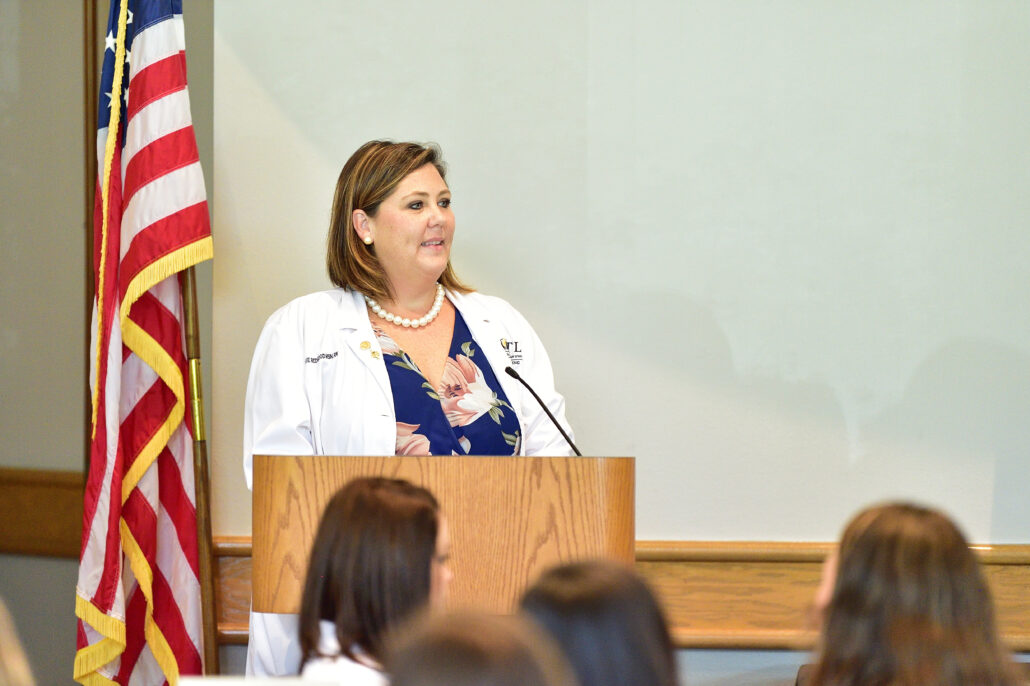
NURSING SHORTAGE
Another early focus of the Scholarship Grants committee were students who would someday become educators themselves. After speaking with several local colleges and universities, Dr. Gong and her fellow trustees found that many schools wanted to start nursing programs but simply lacked the educators to do so.
“We wanted to fund programs that prepared nurses for academic fields,” Dr. Gong said. “The nurses in the area were aging, and there weren’t enough new nurses coming down the pipeline to replace them.”
Unfortunately, this is a continuing issue today, recently exacerbated by the COVID-19 pandemic and the ensuing tsunami of nurses retiring or leaving the profession. Dr. Amie Bedgood, Director of Nursing at Texas Lutheran University (TLU), says that this issue may amplify current nursing shortages.
“Retiring nurses are leaving not only hospitals, but also academia. It’s going to be difficult to fill those roles, which in the long run may mean fewer new nurses going into the field.”
However, Dr. Gong believes the cyclical nature of medical education simply makes scholarships all the more valuable. “Scholarships are the gift that keeps on giving. You get a trained professional who not only helps the community, but may also train more professionals just like them.”
In the meantime, despite the concerning shortage, Dr. Bedgood is optimistic about the future nurses she sees at TLU. She says they have a different mindset than previous graduates, because they know that they’re going into an extremely challenging and quickly-changing landscape.
“They’re excited, they’re ready, they’re energized. These students know what they’re getting into and they’re ready to learn. I think that will really benefit the healthcare systems to get these fired-up new nurses, that they’ll offer some relief to workers who are exhausted and burned out.”
Dr. Bedgood also said that students are showing a strong commitment to their field of study. Though some educators are concerned that a fear of the dangers associated with the job will lead to a lack of students, there is renewed enthusiasm and passion about nursing as an opportunity to affect major change. This mindset fuels many of the students in TLU’s newly launched accelerated Bachelor of Science in Nursing program.
“Surprisingly, we’ve received a large number of students who are leaving other careers to enroll. They have a degree in another field, but they want to train as nurses now,” Dr. Bedgood said. “It’s nice to see that there are people out there who really want to contribute to the healthcare profession.”
This mentality is important to any students entering the healthcare field, Dr. Gong stated. “My advice to healthcare students is to not forget why you wanted to go into healthcare. It’s not an easy path, especially professional school. You have to give up other things to get there. Your friends are moving on with their lives, starting their careers and maybe families, while you’re still studying until 3 a.m. and taking out more student loans. But in the long run, God put you there for a reason, so keep your faith and your passion.”
“They’re excited, they’re ready, they’re energized. These students know what they’re getting into and they’re ready to learn.” -Dr. Amie Bedgood, Director of Nursing at Texas Lutheran University
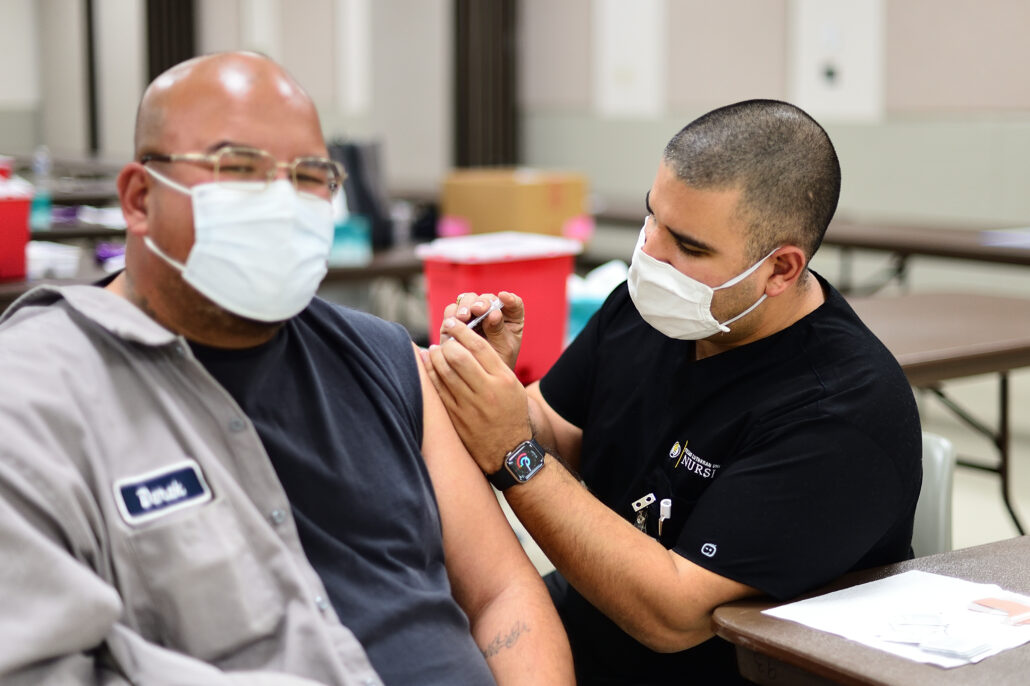
LOOKING AHEAD
A portion of the grant money given to Texas Lutheran University’s nursing program by BHFSA this year was provided by generous donations from the Foundation’s investment managers. These donations were received earlier in the year as unrestricted funds, and BHFSA’s board determined that an effective use of them would be as nursing scholarships.
“We know that nurses are being pushed to their limits, not just in our area, but around the world. If we can help train more nurses to enter the workforce, we can alleviate some of that burden, while also improving patient outcomes,” Cody Knowlton, President and CEO of BHFSA, said.
Dr. Bedgood reported that at this juncture, national nursing organizations are having conversations about how to handle post-traumatic stress on a large scale. She compared the last 18 months in healthcare to working on a battlefield. “It’s like they’ve been Army field nurses. They’ve had some terrible things happen to them.”
But she offered some hope for the future. “Now that we know what we’re up against, we’re better equipped to prepare students for the realities of dealing with COVID-19 patients. And the students have been able to be physically present in classrooms and labs this year, which has been very important for their learning and for their mental health. We’ve faced a lot of challenges, but we’re continuing to make progress and I’m optimistic that things will continue to improve.”
Dr. Gong is also positive about the future of healthcare students. “Things have changed a lot in recent years. Medicine has become a team sport… there isn’t a doctor whose word is god, and everyone has to do whatever he says. Now people are more empowered. We’re teaching people how to collaborate and work as a team.”
“When you give a scholarship, you’re not just helping someone financially. You’re giving them the message that they’re worth it.” -Dr. Alice Gong, BHFSA Trustee
Dr. Gong believes a sense of empowerment can come from receiving a scholarship, as well.
“Education should not just be for those who can afford it. When you give a scholarship, you’re not just helping someone financially. You’re giving them the message that they’re worth it. I remember the first scholarship I got to go to medical school. It was a big deal—it meant someone thought I was important, and that I could do this work.”
Beyond scholarships, there are a couple of very important ways we can all support healthcare students and providers currently working in today’s environment.
“A lot of people want to do something tangible,” said Dr. Bedgood. “Something like food or presents. But honestly, the first thing I would suggest is prayer. Pray for healthcare providers and students. And be kind. There are a lot of tough things happening to them right now. You have to try to see from their perspective—they are people too, and they’re being pulled in a dozen different directions at once. They are just as frustrated as you are by the uncertainty and politicization of everything. So please be supportive and encourage them. They may not even know you’re praying for them—but God still hears our prayers, and will work things out in the background.”
To learn more about Scholarship Grants, please visit bhfsa.org/scholarship.
